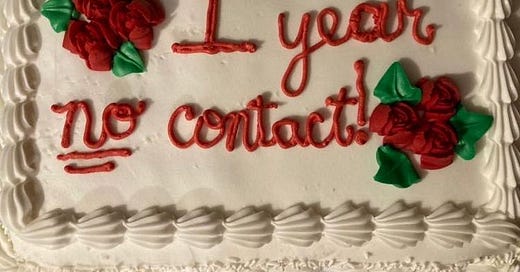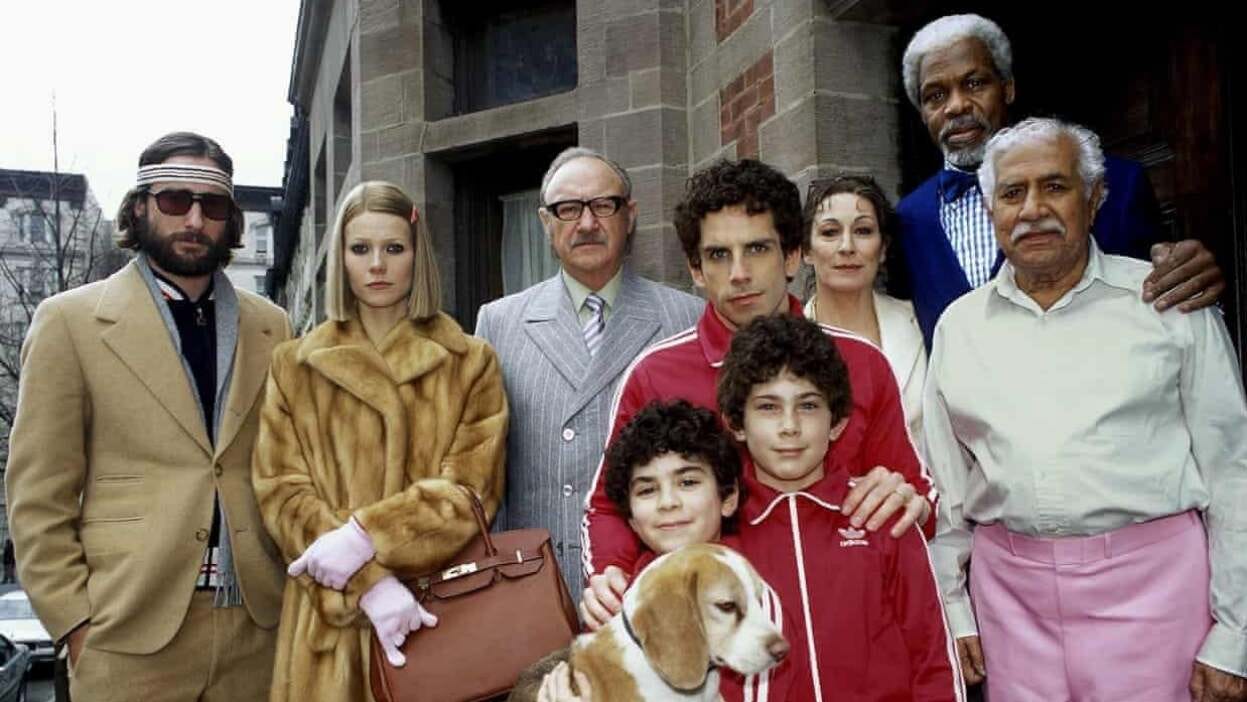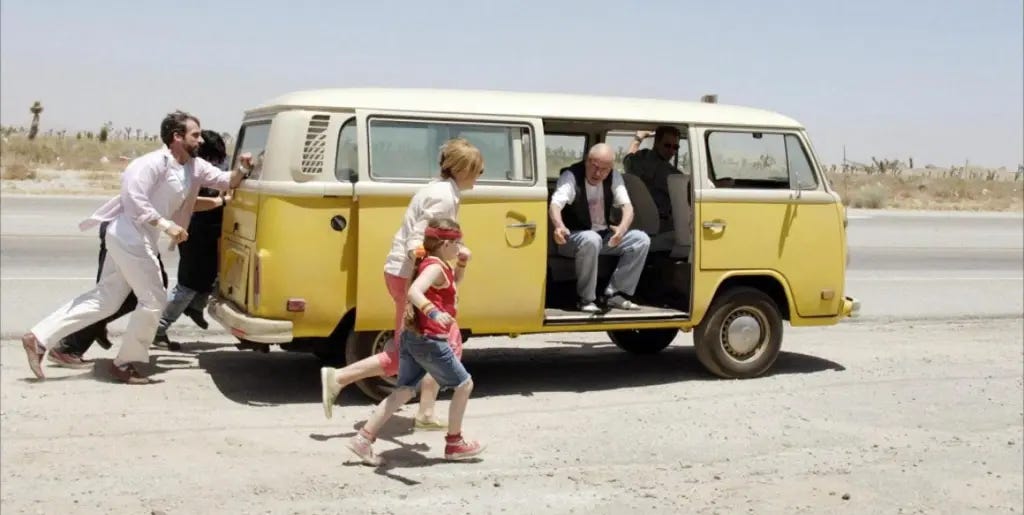Why “No Contact” Isn’t Healing. It’s Just Easier
When we rewrite our pain as performance, who do we really cut off?
A New Yorker article came out last year about how more and more people are going “no contact” with their parents.
It’s written with the usual hush of reverence—like cutting off your dad is a sacred act of spiritual hygiene. We’re told estrangement is a form of self-care, an “emerging norm” rooted in trauma literacy and empowered boundaries.
I read it. I get it.
And I don’t buy it.
Because I’ve lived through this from the other side.
My sister went no contact and then wrote a play about it.
Guess who the villain was.
It wasn’t a memoir. It was a rewrite.
A reframing.
She turned her life into a monologue and the rest of us into scenery.
The story sold. The pain got applause.
But it wasn’t the truth. Not the whole truth, anyway.
She said we were toxic.
That we were abusive.
That we didn’t support her becoming who she truly is.
Maybe that felt true to her. But I was there. And I remember other things too.
Like how she laughed at my jokes.
And how she used to call me every night from LA when she felt like quitting.
And how none of us knew the rules were changing until after the credits rolled.
I used to get angry about it.
Now I just feel sad.
Not just for us, but for what this moment is doing to all of us.
Here’s the part I don’t want to tell you.
She wrote me a Happy Birthday message this year.
I didn’t answer.
Why?
Because I didn’t know if it was real.
Because I was still mad.
Because I thought, what if she’s just gathering new material?
So now I’m the one withholding contact.
I’m the one writing the story.
And I don’t know if I’m doing it for clarity or for revenge.
No contact has become the perfect escape hatch.
It feels empowering. Clean. Final.
And it comes with its own clapping audience online.
But most of the time, it’s not abuse we’re reacting to.
It’s discomfort.
It’s embarrassment.
It’s someone saying something clunky about your job, or your haircut, or who you voted for.
It’s your parents being human and you deciding that being human is unforgivable.
We’re told this is prioritizing mental health.
But we’re not prioritizing mental health. We’re just giving up on conflict resolution.
Meanwhile…
42 percent of U.S. adults are obese
Half of people under 40 report zero close friends
We take more antidepressants than anyone on earth
And we still spend six hours a day staring into devices that tell us to cut out the negative energy
We’re not prioritizing healing.
We’re just getting really good at escape.
Dorothy Parker would’ve seen through this immediately.
“It serves me right for putting all my eggs in one bastard.”
You feel hurt.
You want control.
You want to be the main character in your pain.
So you cut people out instead of letting the relationship get complicated.
But complicated is where love lives.
Real, non-fiction love.
The kind that gets things wrong. That stumbles. That learns how to apologize, not just unfollow.
When we cut people out, we cut off the chance to grow.
No contact doesn’t make you healed.
It makes you alone.
It makes you the sole narrator of a story no one else gets to revise.
And if you’re going to make a character out of someone, at least have the courage to keep them in the scene.
Call in This Week
This week on Landline, we’re asking:
Who have you cut off?
And who do you miss?
Is there a parent, a sibling, or a friend who deserves another draft of the story?
Call in live this Wednesday at 7 PM CT
or leave a voicemail anytime at (615) 212-5437
You can also submit anonymously here
Let’s talk it out before it becomes a monologue you can’t take back.







